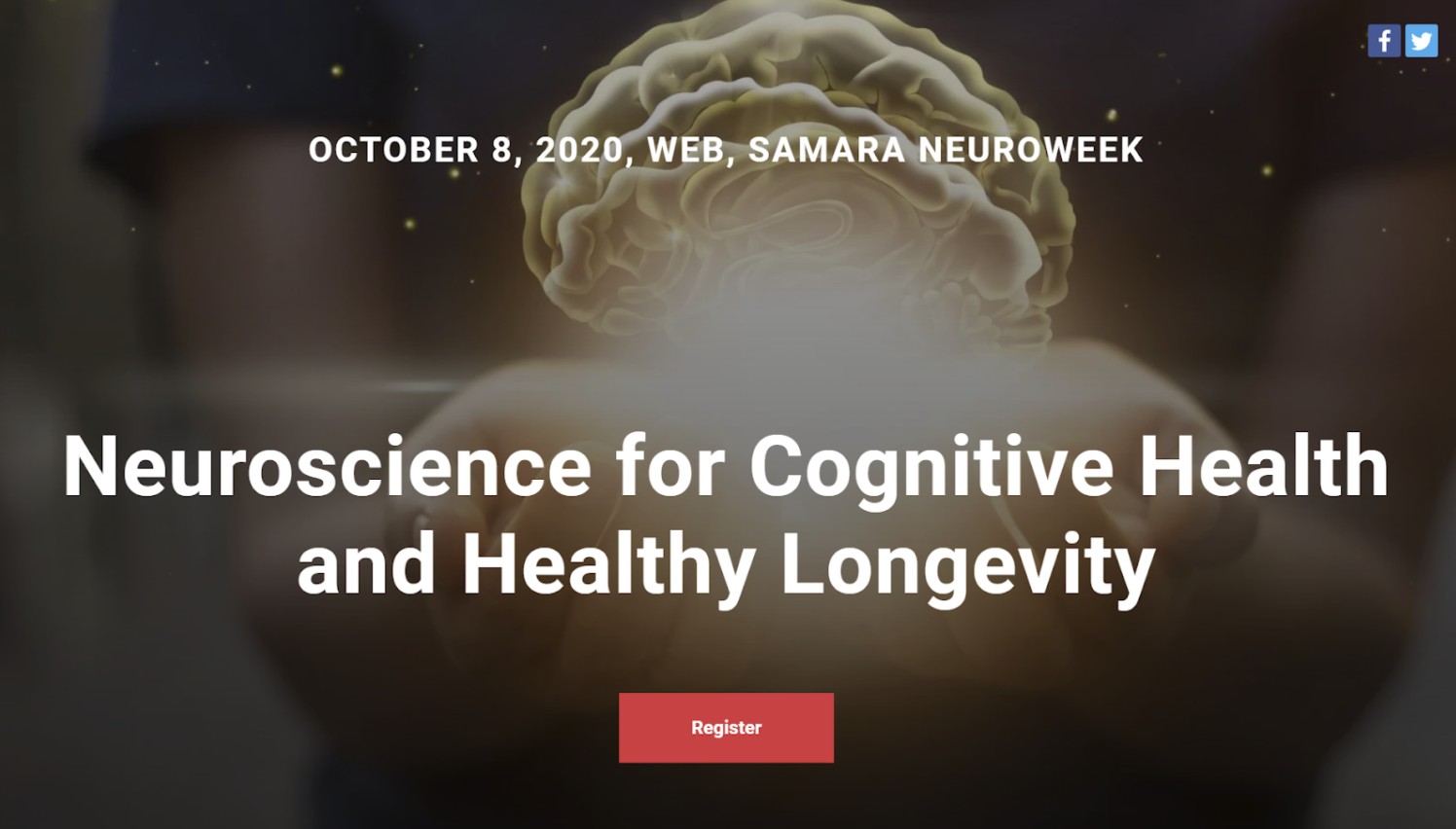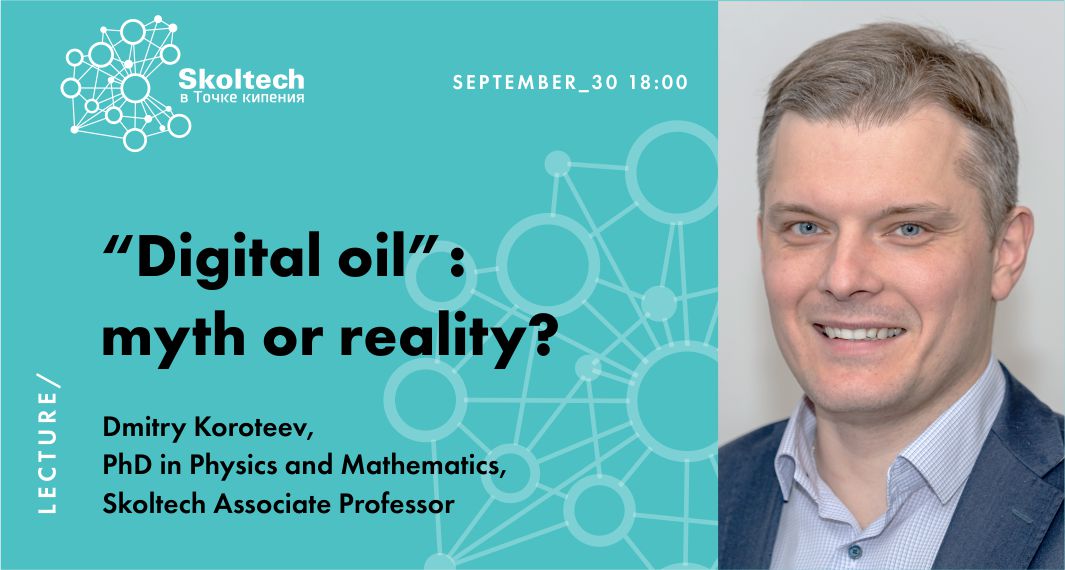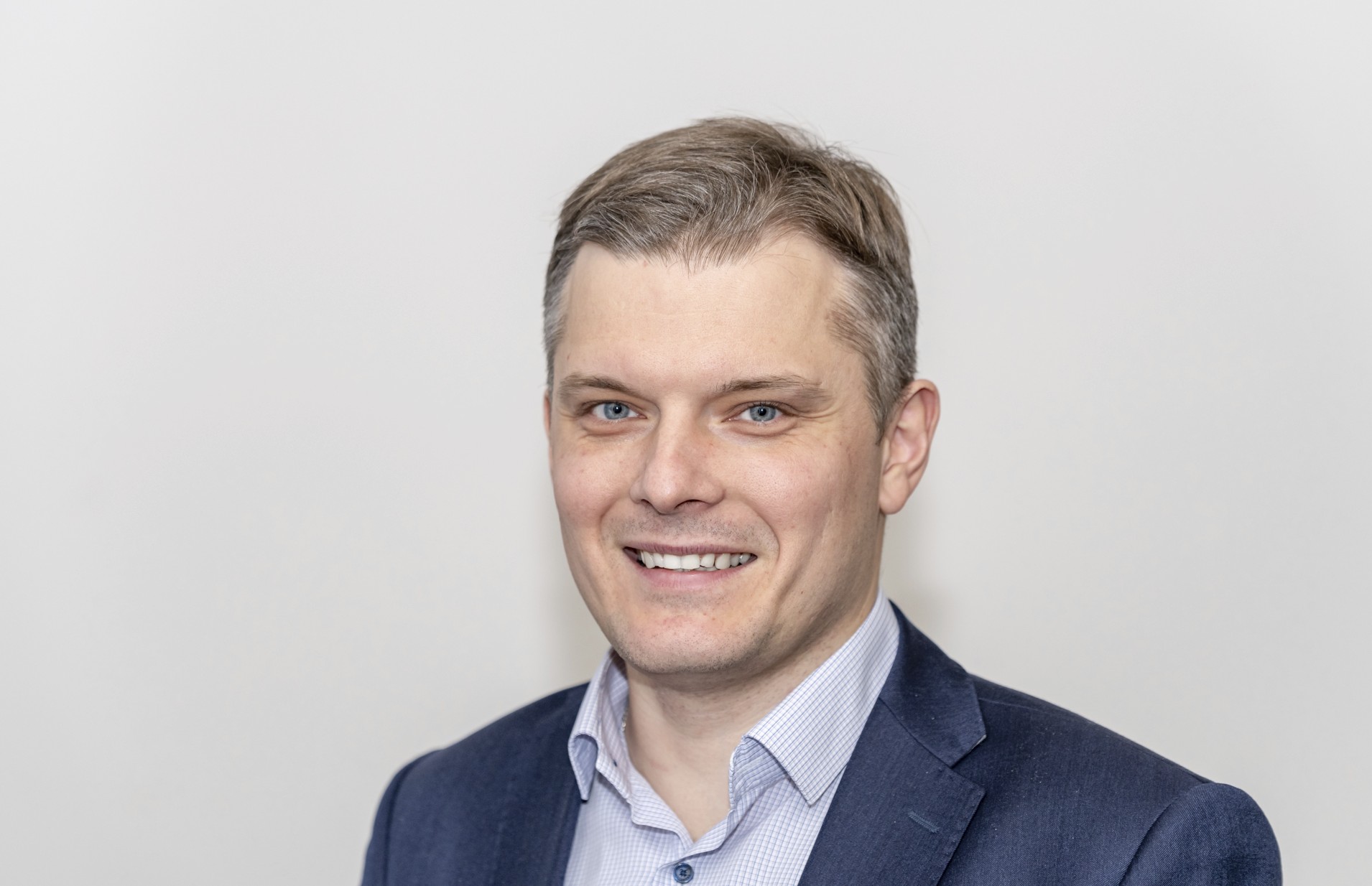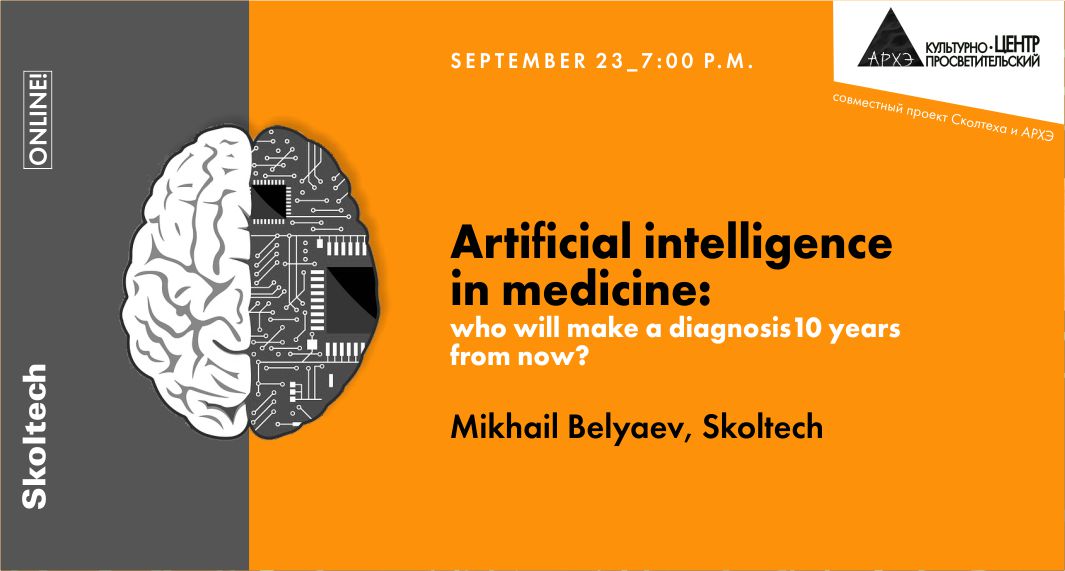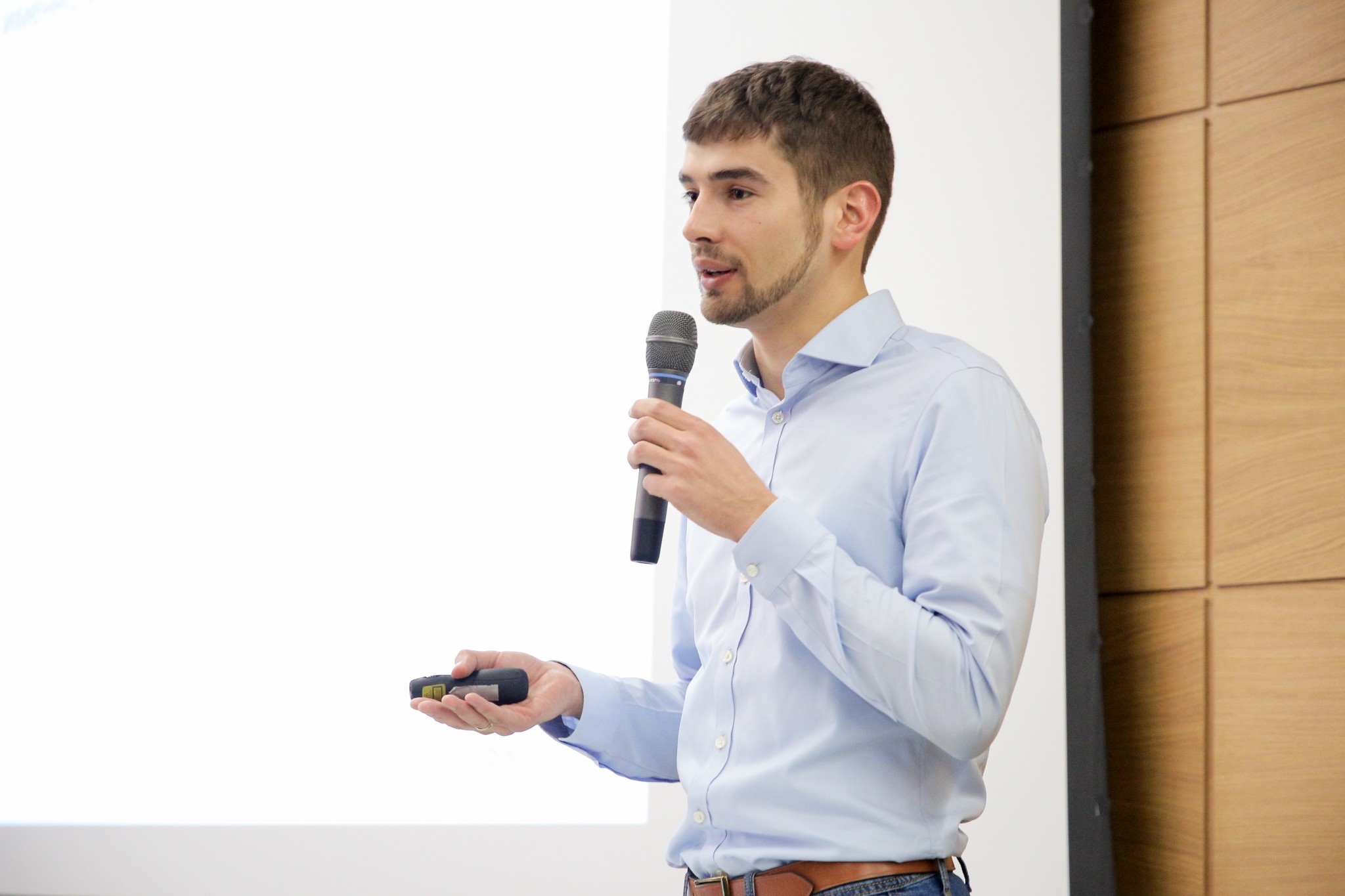-
Category Archives: Seminars
Neuroscience for Cognitive Health and Healthy Longevity
Skoltech Center for Neurobiology and Brain Restoration and HealthNet Infrastructure Center is inviting you to a conference: Neuroscience for Cognitive Health and Healthy Longevity, which will be held on the 8th of October 2020 as a part of The International Week of Neuroscience and Neurotechnology Samara 2020.
Topics:
- cognitive conditions
- cognitive and degenerative disorders
- technologies for the diagnostics
- treatment and prevention of cognitive disorders
Best practices from highly cited professors and directors of leading research institutes and clinics.
The conference program includes an open discussion on the topic: Cognitive Health and Healthy Longevity: Today and Tomorrow.
Among speakers:
Konstantin Anokhin, Brain Institute, Moscow State University;
Petr Brezhestovsky, Institut de Neurosciences des Systems, France (TBC);
Sandra Chapman, Center for BrainHealth®, The University of Texas, USA;
|Marat Kurmyshev, Alekseevskaya Clinic, Memory clinic;
Philipp Khaitovich, Skoltech Center for Neurobiology and Brain Restoration;
Vasily Klyucharev, Сognitive neuroscience institute, HSE;
Irina Popova, Institute of theoretical and experimental Biophysics RAS;
Natalya Semenova, Bekhterev Psychoneurological Research Institute;
Dmitry Shamenkov, Center for IT and social technologies in medicine, Sechenov University;
Mel Slater, The Institute of Neurosciences, University of Barcelona;
Surjo Soekadar, Charité – Universitätsmedizin Berlin, Germany.
More information on the conference, detailed agenda and registration can be found here
“Digital oil”: myth or reality?
As oil prices are plummeting, oil production tends to become cost-ineffective. Yet, scientists strongly benefit from oil development projects by gathering a wealth of information that helps to optimize exploration and production and find new deposits.
Data has become a new commodity, while oil provides an abundant source of data. Oil and gas companies search for better and cheaper technologies, turning to machine learning and artificial intelligence for help.
Software used in production processes, such as drilling, has evolved into a strategic technology element of such importance that it came under Western sanctions against Russia. Skoltech scientists have found ways of reducing process costs and assessing the potential of oil and gas reserves.
Dmitry Koroteev will talk about scientific methods used in oil production, new algorithms for reservoir modeling and AI’s ability to solve the industry problems and discover “new oil”.
Dmitry Koroteev is a PhD in Physics and Mathematics, an associate professor at Skoltech, head of the Digital Petroleum Research Laboratory at the Skoltech Center for Hydrocarbon Recovery (CHR), and founder and CEO of Digital Petroleum.
Admission is limited, so make sure to register in advance.
A live stream of the lecture will be available online.
Artificial intelligence in medicine: who will make a diagnosis 10 years from now?
Making an online appointment, having test results posted to the personal account or seeing a doctor via Skype no longer strikes big city dwellers as extraordinary. With continuous advancement of technology, AI may soon bring about sweeping changes in medicine.
It is only now that the first AI algorithms dating back to the 1960s start to be used for medical data analysis and automatic diagnosis. AI spends a few seconds on a task that takes dozens of minutes to handle using conventional techniques. Computer vision will soon evolve into a fully functional tool, considering that it already can give a clue about important processes going on in the human system that even an experienced doctor may overlook. Doctors rely on advanced technology to assess damage caused by COVID-19, identify different types of strokes in CT scans and detect early-stage tumors. As machines tend to be trained in much the same way as doctors, AI technologies are becoming increasingly common in medicine despite a lack of confidence in their underlying principles.
Mikhail Belyaev, an assistant professor at Skoltech, will talk about the evolution of AI methods in medicine and recent achievements in the field.
Mikhail Belyaev is an expert in AI and ML with a 10-year track record. Prior to joining Skoltech, he worked for Datadvance where he was involved in the development of customized data analysis algorithms for Airbus, Toyota, Areva and other high-profile customers. Since 2015, Mikhail has been focusing on medical data analysis.
PhD Thesis Defense. Kirill Polovnikov
-
PhD Thesis Defense. Ilias Giannakopoulos
-
Skoltech at Technopark. “New technology “unicorns” that sprang up as a result of the pandemic”
Skoltech at Technopark is a new series of science education lectures hosted by the Skolkovo Technopark Lecture Center. Created jointly with the Skolkovo Institute of Science and Technology, the lectures will focus on the world-changing science, technology, innovation, and business topics presented by Skoltech faculty and researchers at the country’s best Technopark.
The new series will kick off with a lecture by Dmitry Kulish, a Skoltech Professor of the Practice, who will talk about new technology “unicorns” that sprang up as a result of the pandemic. The lecture will take place on Tuesday, September 22, at 6:30 p.m.
The new virus that has infected over 25 million people worldwide since last December has triggered dramatic societal changes. To be well-prepared for the future, we should figure out now which changes are crucial and lasting and which technologies and innovations can most effectively deal with new challenges.
Robots that deliver medications to patients and check on social distancing in public places, AI systems that help predict new clusters of epidemiological hazards, virtual clinics and automatic consultants are just a few examples of new technologies that became ingrained in our everyday life during the pandemic.
The pandemic has compelled people and businesses alike to rethink the way they live and operate, bringing about sweeping changes in business models, technologies, professions and markets, as well as relations between people and entire countries. Some experts believe that the “new reality” can become a stepping stone for innovation and a boost in efficiency.
A whole new area in digital technology that took shape over several months of the pandemic, CovidTech has brought forth over a thousand initiatives shown on the StartupBlink global innovation map.
Dmitry Kulish
Dmitry Kulish is a Professor of the Practice at the Skoltech Center for Entrepreneurship and Innovation (CEI), Director of Innovation Workshop and the Best Professor 2020 according to the student vote. In the past, he led innovation, product development and manufacturing teams at R-Pharm, Nanolek, and Fresenius Kabi. At Intel Capital, Dmitry made venture investments in IT, Internet, and digital medicine companies. He is the founder of DrugDevelopment.Ru that engages in angel investments and management consulting in pharmaceuticals and healthcare.
Professor Kulish holds a PhD degree in Biochemistry. He was a Postdoctoral Fellow in Molecular Pharmacology at Harvard University and earned his MBA degree from the Wharton School at the University of Pennsylvania. Dmitry is an author of 11 peer-reviewed publications and 2 patents.
The lecture will take place in Capsule 1 at Skolkovo Technopark. A live stream will be available on YouTube.
We are happy to announce the19th ONLINE USPEX workshop (19th Lyakhov school)!
19th workshop on crystal structure prediction with USPEX code will be held November 11-13, 2020. Program can be found here
The workshop is organized by Prof. Artem R. Oganov and Dr. Vladimir Baturin.
This year our traditional workshop will be held in online format. The comprehensive lectures on the theoretical foundations of materials science and reports of the bleeding edge discoveries in our field will be followed by detailed tutorials from the developers of the USPEX code.
Supported by the Russian Scientific Foundation grant No. 19072-30043 “Computational materials design laboratory”
